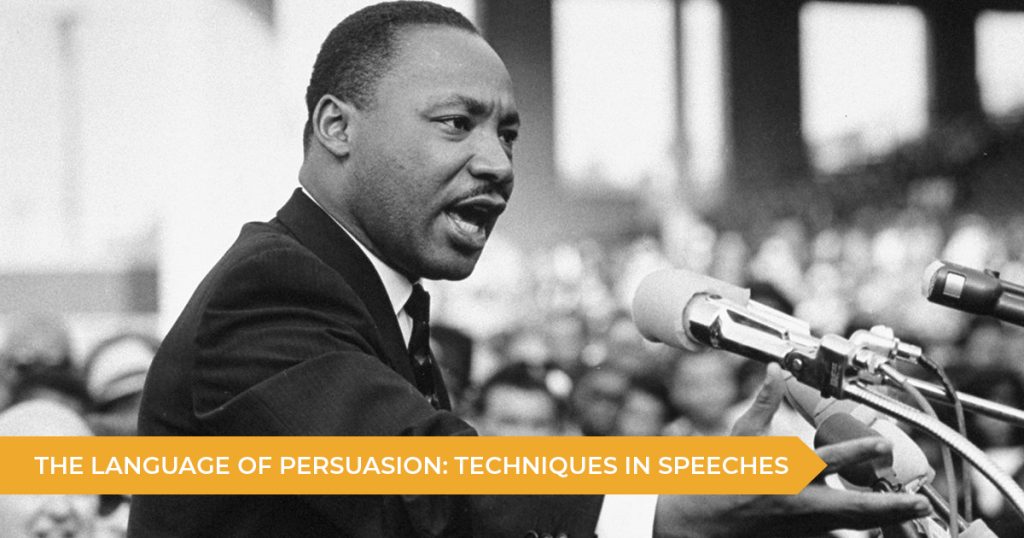Speeches are a powerful form of communication
We hope that you will gain an appreciation of what speeches can do in a society, as well as the language they use that makes them such a great way to educate, encourage, and inspire the people who hear them.
We will explore how truly unforgettable speech is a product of both an engaging delivery as well as the rhetorical language that is included to prove a point and illuminate the ideas of a speaker for their audience. We will also explore specific speeches throughout time and discuss why they were so effective and memorable!
Think-Pair Share
To start with, we’ll begin with a quick revision of some rhetorical devices and discuss the effect they have in persuasive writing. Have a look at the following examples:
Alliteration: “When we properly recognise the power people possess to work productively then our society will improve tenfold.”
Repetition: The women persisted in the face of challenges, persisted on matter the obstacle, persisted, always persisted!”
Simile: “The man was proud as a king ruling over his beloved land.”
Anaphora: “Let freedom ring from the Stone Mountain of Georgia. Let freedom ring from Lookout Mountain of Tennessee. Let freedom ring from every hill and molehill of Mississippi.”
Imagery: “I have a dream that one day every valley shall be exalted, and every hill and mountain shall be made low, the rough places will be plain, and the crooked places will be made straight.”
RELATED: How To Avoid Using Passive Voice in Your Writing
Hyperbole: “It felt as if they would live a million years of conflict before they could know peace.”
Metaphor: “My heart is an orchard filled with foliage that grows and strengthens with each day I tend to my garden.”
Inclusive language: “Let us not wallow in the valley of despair, I say to you today, my friends.”
What makes a great speech?
Let’s take a look at the main elements of creating a great speech:
– Engagement: One of the most important parts of creating a great speech is engaging the audience. Speakers can do this by providing an anecdote, or creating an emotional mood in which the audience can get “hooked-in” and relate to.
– Purpose: If your speech doesn’t have a clear focus, it won’t have much purpose to your audience. Make sure you are addressing a particular point, and providing evidence to support your statements.
– Rhetorical devices: Certain techniques such as metaphors, repetition and alliteration can help to create impact. Let’s take a look at Martin Luther King Jr’s ‘I Have a Dream’ speech which was given on 28th August 1963:
Simile: “This momentous decree came as a great beacon light of hope..”
Allusion: “Five score years ago, a great American in whose symbolic shadow we stand today, signed the Emancipation Proclamation.”
Now, let’s take a look at Greta Thunberg’s speech to the United Nations in 2019:
Rhetoric devices (ethos, pathos, logos) “We are in the beginning of a mass extinction, and all you can talk about is money and fairy tales of eternal economic growth. How dare you!”
Excel in English this year with the help of Talent 100. Learn more about our English Year 7 – 12 course structure, 1-1 tutorials, weekly writing tasks and how we can take your marks to the next level with face-to-face and online class options. Click here for more information.




